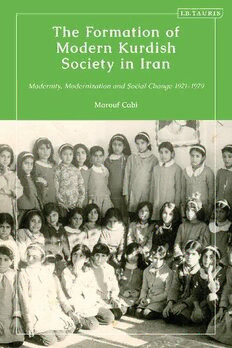
The Formation of Modern Kurdish Society in Iran: Modernity, Modernization and Social Change 1921–1979 PDF
233 Pages·2022·9.792 MB·English
Most books are stored in the elastic cloud where traffic is expensive. For this reason, we have a limit on daily download.
Preview The Formation of Modern Kurdish Society in Iran: Modernity, Modernization and Social Change 1921–1979
Description:
Although the Kurds have attracted widespread international attention, Iranian Kurdistan has been largely overlooked. This book examines the consequences of modernity and modernisation for Iran’s Kurdish society in the 20th century. Marouf Cabi argues that while state-led modernisation integrated the Kurds in modern Iran, the homogenisation of identity and culture also resulted in their vigorous pursuit of their political and cultural rights.Focusing on the dual process of state-led modernisation and homogenisation of identity and culture, Cabi examines the consequences of modernity and modernisation for the socioeconomic, cultural, and political structures as well as for gender relations. It is the consequences of this dynamic dual process that explains the modern structures of Iran’s Kurdish society, on the one hand, and its intimate relationship with Iran as a historical, geographical, and political entity, on the other. Using Persian, Kurdish and English sources, the book explores the transformation of Kurdish society between the Second World War, 1979 Iranian Revolution and with a special focus on the era of the ‘White Revolution’, during the 1960s and 1970s.
See more
The list of books you might like
Most books are stored in the elastic cloud where traffic is expensive. For this reason, we have a limit on daily download.
